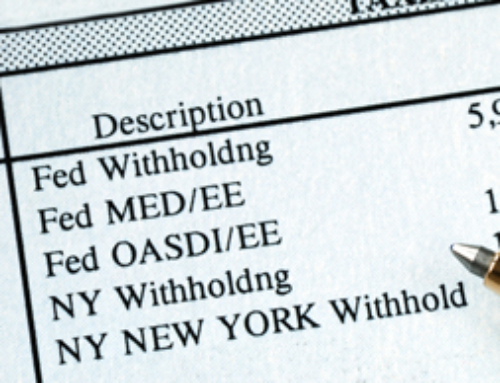 Tax Issues for Parents: Coordinate with Your Kids
Tax Issues for Parents: Coordinate with Your Kids
A woman I know told me she tried to efile her tax return, only to have it rejected. Someone had already filed a tax return using her daughter’s Social Security number.
No, it wasn’t an ex. Nor was it identity theft. It was nothing bad. Her sixteen-year-old daughter was Internet savvy. Having worked during the year, Sally had received a W-2. Being responsible, she went online and used TurboTax to file her own tax return—making it impossible for her parents to file electronically.
How to File Taxes for Children and Dependents
When you are someone’s dependent, or qualify as his or her dependent, you may not claim an exemption for yourself on your own tax return. Naturally, someone without experience would not know this. (See the IRS test for dependent exemptions.)
This is a common problem for families with children working while at college, or when one or both newlyweds still qualify as dependents. Avoid this problem by discussing tax issues with your children. Ensure the exemption for each person appears on only one tax return—either the parent’s or the child’s.
Sometimes this results in higher income taxes for your child. If this is not offset by the savings on your return, perhaps you can remove the child as a dependent.
Divorce and Claiming Exemptions
We could spend hours discussing the “who gets the dependent” issue when it comes to divorced couples. But not today. Today, there is just one thing I want you to do.
Even if your divorce decree says you get to claim your child as a dependent, have your ex sign a Form 8332 for each year that you expect to claim your child. The IRS now requires Form 8332 in the event of a dispute. The Tax Court has agreed with the IRS.
Withholding Investment Income
You may have heard the term “kiddie tax” being bandied about. This means that when your child’s investment income exceeds $1,900, it might be taxed at your highest tax rate. This applies to children under age 19 (or, if they are full-time students, under age 24).
Investment income refers only to interest and dividends and related capital gains distributions—including the Alaska Permanent Fund Dividends. It doesn’t mean wages, self-employment income, or even partnership income.
There are two ways to report your child’s income:
One advantage to including the income on your return is that you don’t have to file tax returns for each child.
The problem is that if your income is low, you could lose your earned income credit. Or when your income is close to certain limits, you could lose the right to contribute to a deductible IRA, reduce your medical and employee business expense deductions—or perhaps even cause phaseouts of exemptions or credits.
In that case, report your child’s income on his or her own tax return. After all, with the help of generous grandparents, or savings accounts, or funds received after accidents, your child might be wealthier than you are. You may not be entitled to tap into those funds, but someone still needs to pay taxes on your child’s income.
Stay tuned to this column during tax season. We’ll be going into more detail about divorce issues, how children affect your taxes—and lots more fun things.

Read More:
Tax Schemes and Tax Turkeys: Stay Away from Too-Good-to-Be-True Tax Advice
Winner! Winner! Winner!: Tax Implications of Winning Lotteries and Game Show Prizes
New Tax Laws for 2011
Open-Enrollment and FSAs: A Bonanza of Tax Advantages






